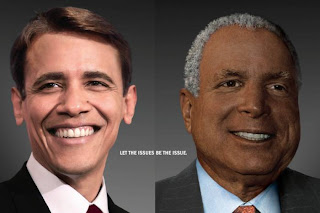Jacobs continues where she left off: having discussed the role of the streets and of neighborhood parks, she goes on about the role of the neighborhood itself as a self-governing (albeit not necessarily in a formal sense) body; this, of course, entails defining what constitutes a neighborhood. Surprisingly enough, Jacobs proposes that we think of city neighborhoods in three levels: a small neighborhood, centered around a street, a larger district, distinct within a city, and a whole city by itself.
This seeming contradiction is explained very well if one understands how cities function as a whole, as opposed to just being the sum of self-contained smaller units (neighborhoods or districts): one of the main properties of an urban center is that people can find, within the whole city, a sizable number of other people sharing their own interests or offering the specialized services (or even goods) they might desire. The potential for such specialization requires a significant concentration of people-potential customers, that only a city can offer. Moreover, there are governmental functions (such as policing, for example), that, most of the time, belong to the authority of the city government - which, however, cannot work properly if it is cut off from the actual neighborhoods. An important entity, then, to which all city dwellers look up, is the city itself.
On the other hand, street neighborhoods, i.e. neighborhoods on the smallest scale, cannot be defined solely through geographical borders and isolated (and insulated) from one another; if so, the whole sense of a city is lost for their inhabitants. They come about naturally, usually around a center which might either be a park or a church or a store, which many of the neighborhood's people frequent, and through the neighbors' interaction many parallel webs of relationships evolve, which result in the existence of a neighborhood. But small neighborhoods like that have little or no political clout; in the rare instances they seem to have more of an impact, that is due to some important person or institution (such as a college campus) living or situated in the neighborhood and, in that case, the neighborhood can only be dependent on the particular person's or institution's whims.
That is why Jacobs argues for another neighborhood level, the district, which can be understood as a number of street neighborhoods, in geographical proximity, which share more or less common problems - and usually has some political representation, in the form of electing a representative to the City Council. The chapter on the uses of city neighborhoods is filled with examples of organizations and mobilizations, mostly at the district level, which were effective in challenging decisions made at a central level. Moreover, organizations at the district level can be very helpful in informing central municipal authorities on the issues of the respective districts, serving as an intermediary between the Mayor or the Police Commissioner and the street neighborhood.
Again, in all three levels of neighborhoods, Jacobs stresses the various relationships that emerge from the daily interaction of the neighbors or of people of common interests or goals within a district or a city. She notes that it does take time for these relationships to be built and to become strong. She also observes that in ethnically homogenous neighborhoods such ties might be developed faster, but at the expense (crucially) of interaction with the bordering neighborhoods, which would form a strong network within a district. Apart from that, ethnical homogeneity would also mean the exclusion of newcomers not belonging to the dominant ethnic group and its breach would result in massive changes, having an indirect effect of making the neighborhood undesirable to those who had settled in because of its ethnic composition. Such changes, then, have an adverse effect on the process of building overlapping relationships and networks (which require time to begin anew) and, consequently, on the effectiveness of the neighborhood as such.
This chapter ends the first part of the book, titled "The Peculiar Nature of Cities". In sum, Jacobs argues that cities have their own properties which are markedly different than those of suburbs and should be treated as whole, diverse entities, rather than the accumulation of small, autonomous communities, particularly since the diversity and specialization in services or jobs afforded to city dwellers is their main motive for living in a city in the first place.
